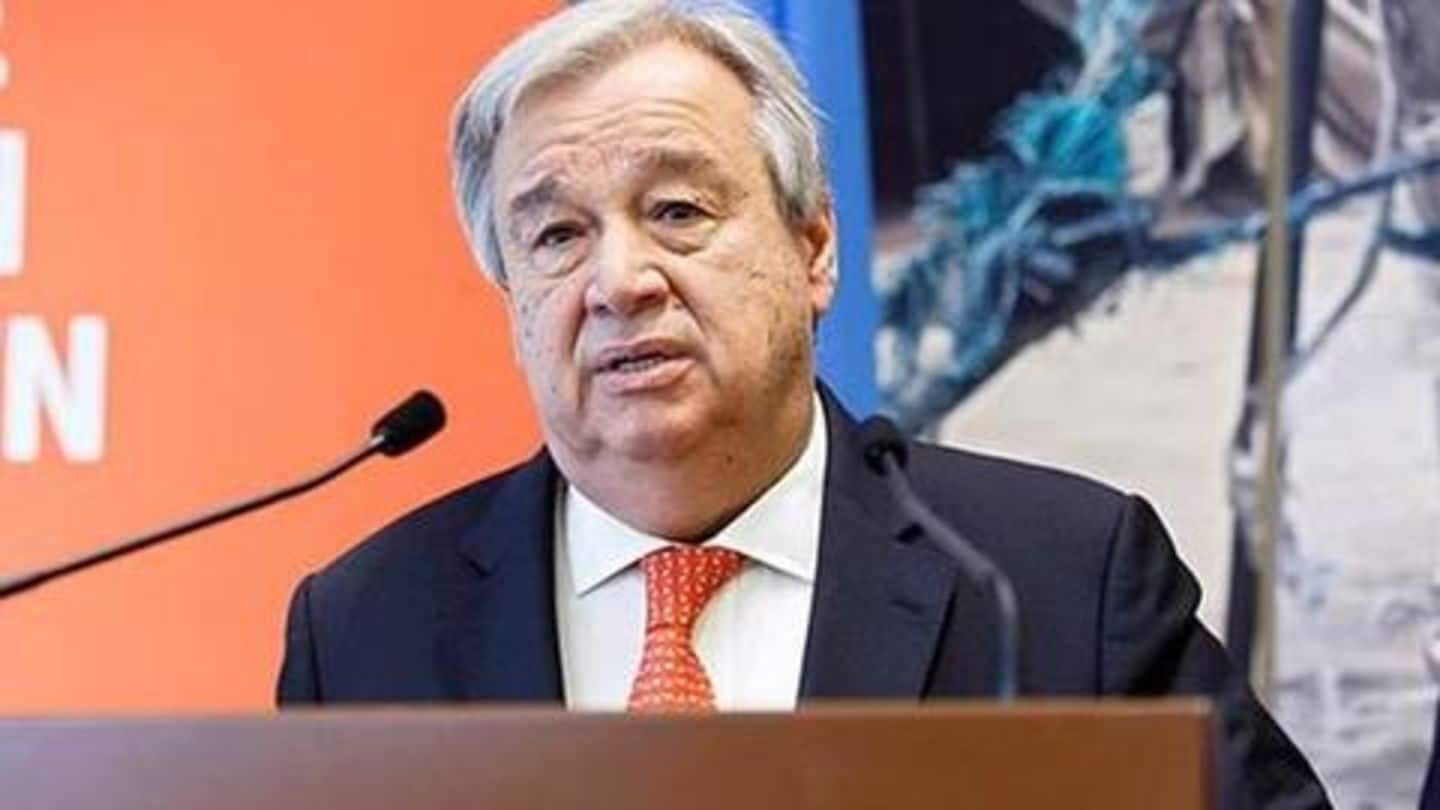
Rapid urbanization increases risks from natural, human-made disasters: Antonio Guterres
What's the story
On the occasion of 'World Cities Day', celebrated annually on October 31, UN Secretary-General Antonio Guterres said today that about 1.4mn people move to cities every week around the world and warned such rapid urbanization can contribute to increased risks from natural and human-made disasters. Guterres said the situation can be prevented by building "resilience to storms, floods, earthquakes, fires, pandemics, and economic crises."
Examples
Bangkok, Quito and Johannesburg forging ways to increase resilience, sustainability
Stressing that "hazards do not need to become disasters," Guterres noted cities around the world are already working towards preventing the situation like Bangkok has built vast underground water storage facilities to cope with increased flood risk. Similarly, Quito (Ecuador) protected over 200,000 hectares of land to boost flood protection and Johannesburg (South Africa) is involving its residents in efforts to improve public spaces.
Views
Investing in resilience is a wise investment: UN Habitat Chief
Guterres got support from Maimunah Mohd Sharif, Executive Director of the UN Human Settlements Programme (UN Habitat), who too flagged the importance of investing in resilience or face growing "economic, social, political and human" risks. Elaborating that human-made and environmental threats ranged from drought, floods, and fires to economic shocks, disease outbreaks, war, and migration, Sharif emphasized, "Investing in resilience is a wise investment."
Aim
This year's focus was on preservation of human life
The theme of this year's commemoration 'Building Sustainable and Resilient Cities' focused on the need to preserve human life and limit damage. Guterres observed a range of UN-backed international agreements, including the 2030 Agenda for Sustainable Development, Paris Agreement on climate change, the Sendai Framework for Disaster Risk Reduction and the New Urban Agenda provide "a roadmap for a more sustainable and resilient world."